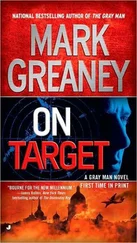“What is your question?”
“I left a family behind back in Sydney. Six months’ work, and I’m back home. That’s what was agreed on.”
Martel put a hand out on the counter, strummed her perfect nails on the tiled surface.
Dr. Powers continued, “I . . . I just want to make sure the terms promised me are honored.”
Martel made no attempt to whisper. “Dr. Powers, my job is to facilitate your clandestine travel safely from Sydney to Pyongyang. Nothing more. Whatever agreement you have with the DPRK, it is between yourself and the DPRK.”
Powers looked to the door to the living room nervously. “I don’t trust them. They watch over us like we are prisoners. They won’t answer my questions. I just thought . . . you are working with them. Can you help me? Maybe just ask them to be a little more forthcoming about the arrangements in place. Please?”
Martel took her hand from the counter next to her and placed it on the smaller woman’s shoulder. With a little smile she said, “Doctor. I understand.”
The older redhead looked relieved. “I knew you would.”
“I understand that the fact I am female and I have round eyes, to you, means I should be more sympathetic than the North Korean men acting as security here. But nothing could be further from the truth. They have use for you, I do not.” She lowered her hand and headed for the door. “When you get to Pyongyang, I’m sure your concerns will be alleviated.”
Powers all but shouted, “Do you have any idea how ridiculous that statement sounds?”
Martel was unfazed by the redhead’s anger. “I didn’t agree to work for the North Koreans. You did. Your decision is made, and you would do well to make peace with that decision, because they are not going to allow you to change your mind at this juncture.” She returned to the living room without another word.
As she passed out the documents and went over the individual legends for each of the five, she let herself wonder what would happen to these Australians. Working with the North Koreans certainly would be fraught with legitimate concern, but she expected all five of them to fulfill their contract with Pyongyang and to return home much wealthier than when they left. It was, of course, illegal work, and they were being paid with this in mind.
Martel knew very little about what these five would be doing for North Korea, but even so, she wasn’t worried about this operation from any sort of a moral standpoint. It wasn’t as if these people were nuclear scientists or rocket scientists. They were geologists, that was all. No threat to anyone, certainly, even if they were working for the North Koreans. No, this was just some industrial commercial and diplomatic subterfuge, nothing dangerous.
And then she paused for a moment, thinking about the blood on the passport and the annoying American who had no doubt shed it. If the North Koreans were willing to use violence in a foreign nation to secure the travel of these geologists, perhaps the stakes were higher than she thought.
She pushed the misgivings out of her mind, a skill she had developed and honed over her intelligence career.
Right now she just wanted to get these five on the nine-thirty flight tomorrow morning to Pyongyang, to sanitize the safe house, and then to go home.
Nothing else mattered to Veronika Martel.
5
The dented gray sedan carrying the four Campus operators and the body of ex–CIA officer Colin Hazelton pulled into the hangar of the fixed-base operator at the far east end of Tan Son Nhat airport just after one a.m.
The sole aircraft in the hangar, a sleek, white Gulfstream G550, had already been unplugged from its APU by the ground crew, who had conspicuously disappeared as the car approached the loading stairs.
As the men climbed out of the vehicle an attractive woman stepped out of the office of the fixed-base operator. Her blond hair was pulled into a neat bun, and her generic flight attendant’s uniform was perfectly pressed.
Adara Sherman was officially the flight coordinator for the Campus G550, but this was just one of her many duties. She also provided security to the aircraft, organized every bit of travel for the operators in her organization, dealt with customs issues, and performed other duties as required.
Clark stepped up to Sherman as soon as he climbed out from behind the wheel. “Good to see you again.”
“You, too, Mr. Clark.”
“What’s the situation?”
“We’re fine. Customs is dealt with, the ground crew and office personnel are giving us some space.”
“I assume that cost a small fortune.”
“Discretion comes cheaper here than in some other places. Can I help with the body?”
“We’ll handle him. Just let the flight crew know we needed to be out of the country an hour ago, so anything they can do to expedite will be appreciated.”
Sherman headed for the stairs.
Driscoll and Ryan carried the body of Colin Hazelton onto the plane while Clark and Chavez stood guard at the entrance to the hangar, making sure no personnel from the FBO or the airport made the mistake of taking a peek into the hangar during this critical moment of exposure.
Adara had already placed a body bag on the floor of the cabin. The presence of several ready-to-go body bags in the cargo hold of the G550 was a grim reminder to the operators of The Campus that the work they did was high stakes, but this was the first time one of the bags had been put to use. Hazelton’s body was zipped inside, then he was placed into a hidden compartment built between the rear bulkhead and the cargo hold. It was specifically designed to hide a full-sized man, but it was just barely large enough for this role. Each of the operators had tested it out, and it had even been used operationally to hide one of the men during immigration and customs inspections.
All agreed that the person who customized the compartment had done so with no plans to put it to personal use.
Hazelton had no complaints, however.
When all were on board and the hatch sealed, the pilots began taxiing toward the tarmac. Slowly at first, but soon they began expediting their departure off the nearly empty runway, and they were airborne in minutes.
—
Shortly after leveling off, Adara served the men coffee, juice, and water. Clark sat alone up at the bulkhead, and here he called Gerry Hendley, the director of The Campus and the owner of the jet. While he drank coffee, Clark carefully filled him in on everything that had happened.
Soon the entire team converged around the teak table in the center of the aircraft, and together they inspected the note Colin Hazelton had scribbled seconds before succumbing to his wounds. Both Clark and Chavez wore reading glasses, but even with their corrected vision it was hard to make out the writing. It was clear there were only four words in total on the page, one word alone, and then below it, two more. Then, at the bottom, four more letters had been scribbled, badly, almost one on top of the other. The wide blood smear across the chicken scratch only added to the difficulty of discerning Hazelton’s penmanship.
Chavez said, “The first word is four letters, but it’s completely obscured by the blood. Not a clue. Below it, there are two words. The first one looks like . . . is that ‘skata’?”
Clark said, “That means ‘shit’ in Greek.”
“You speak Greek?” Ryan asked, surprised.
“No, but I had Greeks working for me in Rainbow. Working for me causes a man to cuss, I guess. I heard that one a lot.”
Driscoll turned the sheet his way to look it over, and he leaned even closer. “It’s not ‘skata.’ I think it’s ‘skala.’”
Читать дальше












